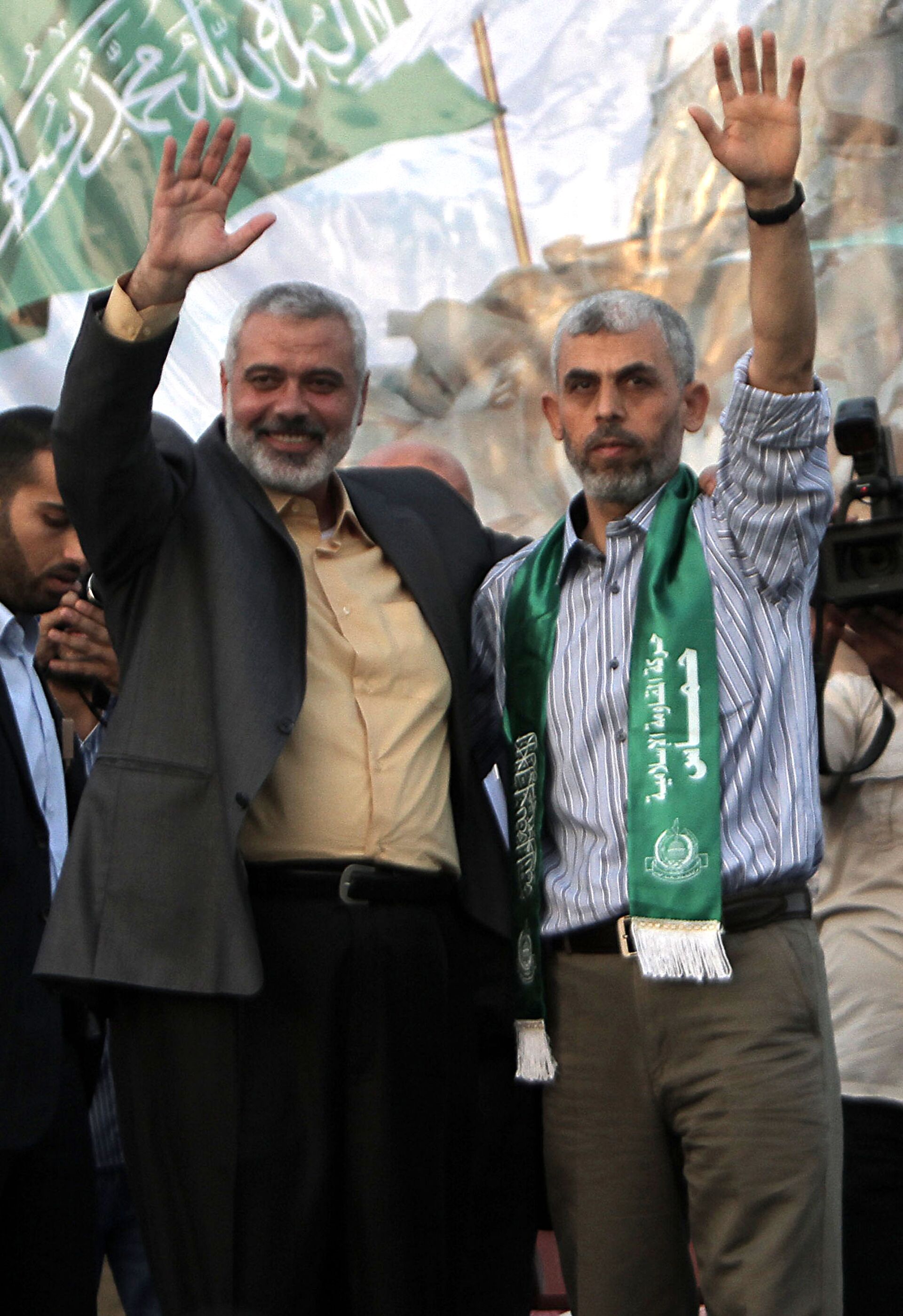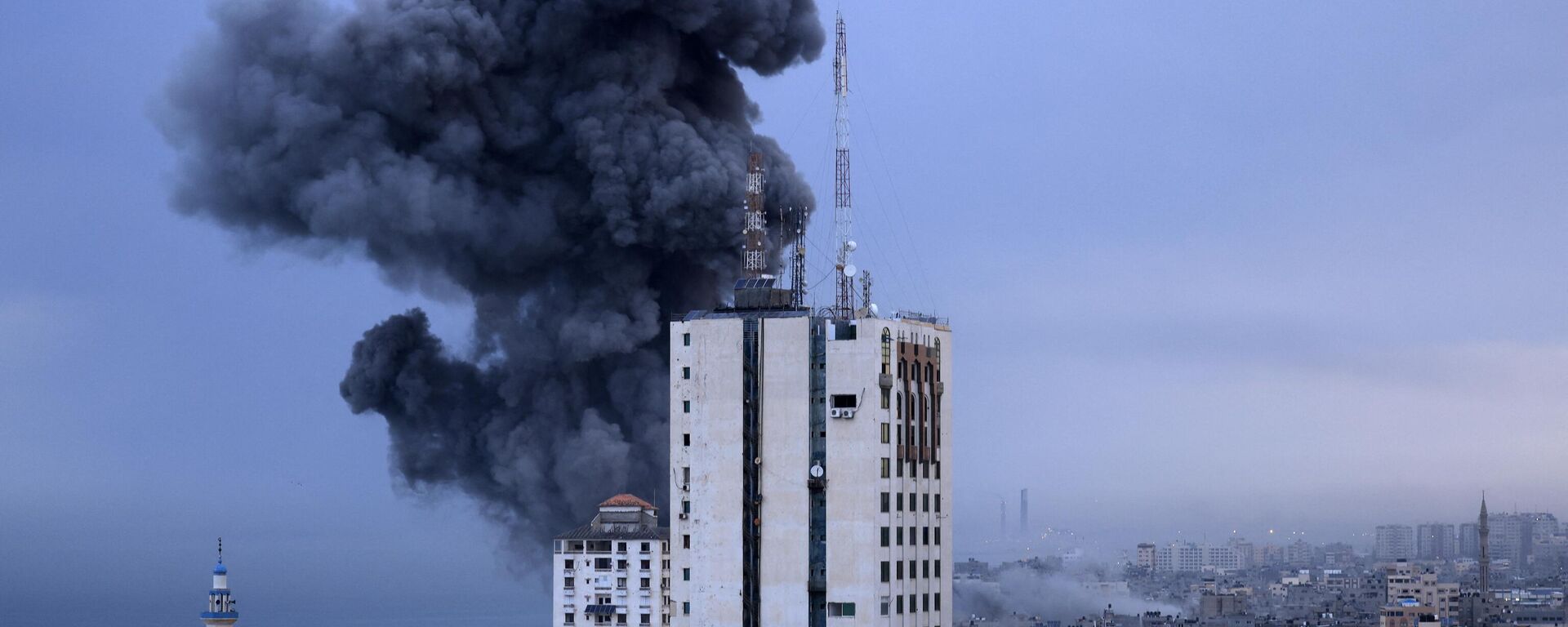https://sputniknews.in/20231009/what-is-hamas-4688141.html
What is Hamas?
What is Hamas?
Sputnik India
As tensions soar over the latest Israel-Hamas escalation, Sputnik explains what Hamas as a movement is all about in this decades-long conflict.
2023-10-09T21:28+0530
2023-10-09T21:28+0530
2023-10-20T17:04+0530
israel
hamas
iran
gaza strip
israel defense forces (idf)
https://cdn1.img.sputniknews.in/img/07e7/0a/09/4684399_0:160:3072:1888_1920x0_80_0_0_83a5e3015c2d4648039d38a974238301.jpg
The United Nations Partition Plan for Palestine of 1947 held significant implications for the region. This historic resolution marked the final withdrawal of the British from the region and recommended the creation of two separate states for Jews and Arabs in the formerly united (under British control) Palestine.The Arab community rejected this proposal, perceiving it as unjust and unfavorable to their interests. Hamas was created as part of the Muslim Brotherhood organization and today governs just the Gaza Strip. The West Bank is not under its control.However, it is worth noting that beyond the confines of Gaza, Hamas has steadily garnered support. For many Palestinians residing outside the Gaza Strip, Hamas stands as their foremost advocate in defending their rights. In the dynamic panorama of the Middle East, Hamas emerged as an unpredictable and complex actor, with its intricate history, objectives, and international engagements. This article embarks on an exploration of Hamas as a multifaceted entity, delving into its origins, its strategic agenda, and the diverse channels of support it has cultivated over the passage of time.What is Hamas' Militant Group in Gaza? Hamas, derived from the acronym "Harakat al-Muqawama al-Islamiya," signifies the Islamic Resistance Movement within the Palestinian landscape. Its inception traces back to 1987 during the First Intifada, a period fraught with Palestinian grievances and discontent. Initially rooted in religious and social activities, Hamas has undergone a remarkable transformation, evolving into a multifaceted entity deeply enmeshed in both the political and military realms, thus significantly influencing the ongoing Palestinian-Israeli conflict.The establishment of Hamas unfolded in December 1987 within the confines of Gaza. This pivotal moment transpired amidst a heightened climate of Palestinian resistance against Israeli occupation. Sheikh Ahmed Yassin, a Palestinian cleric, played a central role in its founding, alongside a group of like-minded individuals. Their vision encompassed not only addressing the spiritual and political aspirations of the Palestinian population but also mounting formidable resistance against the dominance of Israeli forces.On January 25, 2006, elections were held in Palestine. Hamas won the majority - 80 seats - while Fatah won 43 in the Palestinian Legislative Council. In June 2007, a military conflict occurred in Gaza between Fatah and Hamas, leading to Hamas gaining complete control over the Gaza Strip, after driving out most Fatah activists.Presently, Hamas claims the allegiance of approximately 100,000 individuals residing in the Gaza Strip. Its organizational structure can be bifurcated into two distinctive wings: the political and the military. While the political wing is primarily devoted to less militant pursuits, including social welfare and governance in Gaza, infiltration and combat is perpetrated by Hamas's formidable military wing.The military wing of Hamas, according to various media reports, comprises an estimated 10,000 to 12,000 operatives. A select few, regarded as the elite cadre, have undergone intensive military training, often abroad. These individuals constitute the core of Hamas's militant prowess, shaping the group's strategy and tactics on the ground.What is Hamas' Agenda? Hamas's agenda is multifaceted, encompassing political, social, and religious dimensions. At its core, Hamas seeks to "fight against Israel for Palestinian state independence", including the West Bank, Gaza Strip, and East Jerusalem, with Jerusalem as its capital. Its stance towards Israel is complex, as it opposes the existence of Israel but has indicated conditional acceptance of a long-term truce.Politically, Hamas has participated in Palestinian legislative elections and seeks to govern the Palestinian territories effectively. Simultaneously, it provides essential social services such as healthcare, education, and welfare to the Palestinian population, often filling gaps left by official Palestinian authorities. Religiously, Hamas operates within the framework of Islamic principles and values. It seeks to promote Islamic law in the territories it controls, reflecting the importance of religion in its agenda. That said, some countries have gone so far as to recognize the movement as a terrorist organization, in particular Israel.
https://sputniknews.in/20231009/israel-hamas-war-ten-nepali-students-added-to-death-toll-4685132.html
israel
iran
gaza strip
Sputnik India
feedback.hindi@sputniknews.com
+74956456601
MIA „Rossiya Segodnya“
2023
Sputnik India
feedback.hindi@sputniknews.com
+74956456601
MIA „Rossiya Segodnya“
News
en_IN
Sputnik India
feedback.hindi@sputniknews.com
+74956456601
MIA „Rossiya Segodnya“
Sputnik India
feedback.hindi@sputniknews.com
+74956456601
MIA „Rossiya Segodnya“
israel, palestine, hamas, arab-israel conflict, war between hamas and israel, what are the hamas fighting for, what does hamas believe in, what is israel and hamas fighting about, what did israel do to hamas, gaza, gaza strip
israel, palestine, hamas, arab-israel conflict, war between hamas and israel, what are the hamas fighting for, what does hamas believe in, what is israel and hamas fighting about, what did israel do to hamas, gaza, gaza strip
What is Hamas?
21:28 09.10.2023 (Updated: 17:04 20.10.2023) As tensions soar over the latest Israel-Hamas escalation, Sputnik explains what the movement Hamas is all about in this decades-long conflict.
The United Nations Partition Plan for Palestine of 1947 held significant implications for the region. This historic resolution marked the final withdrawal of the British from the region and recommended the creation of two separate states for Jews and Arabs in the formerly united (under British control) Palestine.
The Arab community rejected this proposal, perceiving it as unjust and unfavorable to their interests. Hamas was created as part of the Muslim Brotherhood organization and today governs just the Gaza Strip. The West Bank is not under its control.
However, it is worth noting that beyond the confines of Gaza, Hamas has steadily garnered support. For many Palestinians residing outside the Gaza Strip, Hamas stands as their foremost advocate in defending their rights.
In the dynamic panorama of
the Middle East, Hamas emerged as an unpredictable and complex actor, with its intricate history, objectives, and international engagements. This article embarks on an exploration of Hamas as a multifaceted entity, delving into its origins, its strategic agenda, and the diverse channels of support it has cultivated over the passage of time.
What is Hamas' Militant Group in Gaza?
Hamas, derived from the acronym "Harakat al-Muqawama al-Islamiya," signifies the Islamic Resistance Movement within the Palestinian landscape. Its inception traces back to 1987 during the First Intifada, a period fraught with Palestinian grievances and discontent.
Initially rooted in religious and social activities, Hamas has undergone a remarkable transformation, evolving into a multifaceted entity deeply enmeshed in both the political and military realms, thus significantly influencing the ongoing Palestinian-Israeli conflict.
The establishment of Hamas unfolded in December 1987 within the confines of Gaza. This pivotal moment transpired amidst a heightened climate of Palestinian resistance against Israeli occupation.
Sheikh Ahmed Yassin, a Palestinian cleric, played a central role in its founding, alongside a group of like-minded individuals. Their vision encompassed not only addressing the spiritual and political aspirations of the Palestinian population but also mounting formidable resistance against the dominance of Israeli forces.
On January 25, 2006, elections were held in Palestine. Hamas won the majority - 80 seats - while Fatah won 43 in the Palestinian Legislative Council. In June 2007, a military conflict occurred in Gaza between Fatah and Hamas, leading to Hamas gaining complete control over the Gaza Strip, after driving out most Fatah activists.
Presently, Hamas claims the allegiance of approximately 100,000 individuals residing in the Gaza Strip. Its organizational structure can be bifurcated into two distinctive wings: the political and the military.
While the political wing is primarily devoted to less militant pursuits, including social welfare and governance in Gaza, infiltration and combat is perpetrated by Hamas's
formidable military wing.
The military wing of Hamas, according to various media reports, comprises an estimated 10,000 to 12,000 operatives. A select few, regarded as the elite cadre, have undergone intensive military training, often abroad. These individuals constitute the core of Hamas's militant prowess, shaping the group's strategy and tactics on the ground.
Hamas's agenda is multifaceted, encompassing political, social, and religious dimensions. At its core, Hamas seeks to "fight against Israel for Palestinian state independence", including the West Bank, Gaza Strip, and
East Jerusalem, with Jerusalem as its capital. Its stance towards Israel is complex, as it
opposes the existence of Israel but has indicated conditional acceptance of a long-term truce.
Politically, Hamas has participated in Palestinian legislative elections and seeks to govern the Palestinian territories effectively. Simultaneously, it provides essential social services such as healthcare, education, and welfare to the Palestinian population, often filling gaps left by official Palestinian authorities.
Religiously, Hamas operates within the framework of Islamic principles and values. It seeks to promote Islamic law in the territories it controls, reflecting the importance of religion in its agenda. That said, some countries have gone so far as to recognize the movement as a terrorist organization, in particular Israel.




